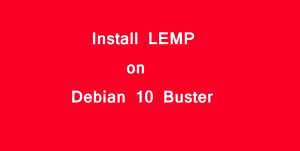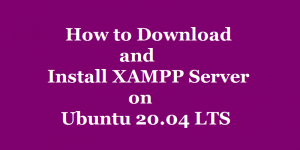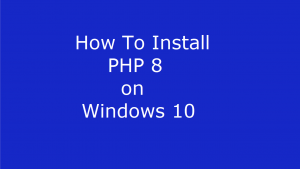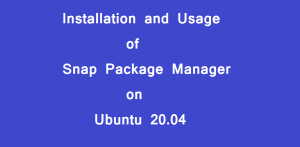How to Install and Use Snap on Ubuntu 20.04
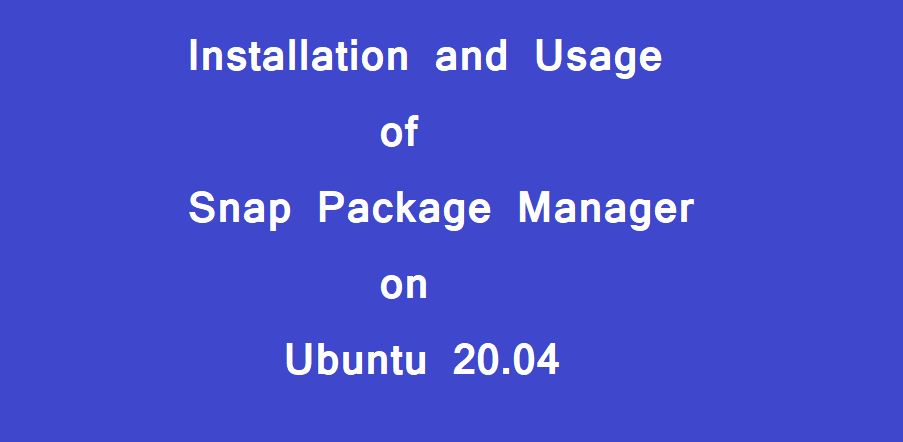
In this tutorial we will see the how to install and Use Snap Package Manager on Ubuntu 20.04. However, our target operating system will be Ubuntu 20.04. Moreover, Ubuntu Software was the only package manager for Ubuntu prior to Ubuntu version 16.04. Additionally, an alternative package management software was added in Ubuntu 16.04 and onwards. This was Snap package management software. This is sometimes also called as Snapd or Snappy. Moreover, it is an additional package management tool for Ubuntu.
| Link to Official Website of Snap Package Manager |
The Developers – Conical
However, the program package format for Snap was developed by Conical. Moreover, this is the same company which is behind the development and maintenance of Ubuntu operating system. Additionally, Snap may be used across all Linux distributions. However, the Snap packages can be installed through command line or these may be downloaded from the Snap website as .snap files. Also, the Snap package Management Software creates separate folders for each application installed so that there is no interference of Apps with the rest of the system.
Furthermore, we will see step by step Installation and Usage of Snap Package Manager on Ubuntu 20.04.
The prerequisite for the installation of Snap Package Manager
- A machine with installed Ubuntu 20.04 Desktop or Server System.
- A root user name and the logging password.
| How to install Ubuntu 20.04 Desktop System Step by Step |
Installation
Although, Snap is installed on the Ubuntu Desktop System by default along with the installation of the operating system. Also, the Snap Package Manager is available in the default software repository of Ubuntu. If the Snap Package Management Software is not installed on your system. Open the command line terminal and issue the following command in the terminal.
sudo apt-get install snapdVersion Check
When the Installation is complete. Verify the version of Snap package manager. Issue the following command to verify the version of Snap package manger in the terminal window.
sudo snap versionWe will get the following output of the above command:
| sudo snap version snap 2.51.1 snapd 2.51.1 series 16 ubuntu 20.04 kernel 5.8.0-63-generic |
Package List
Additionally, we can see the list of all the packages available in Snap Package Repository. Further, open the terminal window and issue the following command.
sudo snap findHowever, the output of the command will be like shown below.
| $ sudo snap find No search term specified. Here are some interesting snaps: Name Version Publisher Notes Summary antstream-arcade 2.1.1447 antstream – Officially licensed retro game streaming platform with 1000+ titles to play, challenges & global tournaments. Free to Play! blender 2.93.1 blenderfoundation* classic Blender is the free and open source 3D creation suite. converternow 2.6.0 ferraridamiano – A simple, immediate and fast converter! ⚡ discord 0.0.15 snapcrafters – All-in-one voice and text chat for gamers edgexfoundry 1.3.1-9 canonical* – Open-source framework for IoT edge computing foobar2000 1.6.6 mmtrt – foobar2000 is an advanced freeware audio player. gimp 2.10.24 snapcrafters – GNU Image Manipulation Program hugo v0.86.0 hugo-authors – A Fast and Flexible Static Site Generator built with love by bep, spf13 and friends in Go. inkscape 1.1-ce6663b3b7-2021-05-25 inkscape* – Vector Graphics Editor juju 2.9.9 canonical* classic A model-driven operator lifecycle manager krita 4.4.5 krita* – Digital Painting, Creative Freedom litteris master raibtoffoletto – Penpal Correspondence Organized musescore 3.6.2 musescore* – Create, play and print beautiful sheet music. newsboat r2.24 minoru – An RSS/Atom feed reader for text terminals okular 20.12.3 kde* – Document Viewer pocket-browser 1.6.2 pocketinc – An open-source browser made for privacy and going towards security! qownnotes 21.7.12 pbek – Plain-text file markdown note taking with Nextcloud / ownCloud integration retroarch 1.9.7 libretro – RetroArch telegram-desktop 2.8.11 telegram.desktop – Official desktop client for the Telegram messenger utilso 3.7.7 sleptsov – All-in-one tools for developers veloren 0.4.2+git21.g78940c2 timsueberkrueb – An open-source multiplayer voxel RPG webots R2021b cyberbotics – Webots is a free and open-source 3D robot simulator xournalpp-mobile 1.1.11 jasmich – Infinitely take notes, sketch and learn yuzu 701 nightmayr – Nintendo Switch Emulator zwavejs2mqtt v5.2.2 joachimmg – Fully configurable Zwave to MQTT Gateway and Control Panel. audacity 3.0.2 diddledan – Audio software for multi-track recording and editing bitwarden 1.27.1 bitwarden* – A secure and free password manager for all of your devices. Provide a search term for more specific results. |
Package Name
However, we can install any package available is the Snap repository. Moreover, to install a package open terminal window and execute the following command.
sudo snap install package-name
(Here replace package-name with the name of the package you want to install)
For example, to install vlc media player on Ubuntu 20.04 using Snap Package Management Software. Issue the following command in the terminal windows.
sudo snap install vlcAfter the installation of the vlc media player you will get the following output on the screen.
sudo snap install vlc| vlc 3.0.16 from VideoLAN* installed |
Refresh Package
Furthermore, we can update the installed package from Snap repository. To update the installed package from Snap repository. Issue the following command in the terminal windows.
sudo snap refresh package-name(Here replace the package-name with the software package name you wish to update)
For example, to update vlc media player package from Snap repository. Issue the following command in the terminal window.
sudo snap refresh vlcAdditionally, as we have fresh installed the package there will be no updates available and the output message will be as given below.
snap "vlc" has no updates availableSnap List
However, if you want to list all Snap packages, run the following command:
sudo snap listThe output of the above command will be like this:
sudo snap list
Name Version Rev Tracking Publisher Notes
atom 1.57.0 282 latest/stable snapcrafters classic
brackets 1.14.1 138 latest/stable snapcrafters classic
core 16-2.51.3 11420 latest/stable canonical* core
core18 20210611 2074 latest/stable canonical* base
core20 20210702 1081 latest/stable canonical* base
gnome-3-34-1804 0+git.3556cb3 72 latest/stable/… canonical* -
gtk-common-themes 0.1-52-gb92ac40 1515 latest/stable/… canonical* -
snap-store 3.38.0-64-g23c4c77 547 latest/stable/… canonical* -
snapd 2.51.1 12398 latest/stable canonical* snapd
vlc 3.0.16 2344 latest/stable videolan* - |
Recent ChangesHowever, to see the recent changes, issue the following command in the terminal windows:
sudo snap changesThe output of the above command will be as shown below:
sudo snap changes
| ID Status Spawn Ready Summary 4 Done today at 12:46 IST today at 12:47 IST Install “vlc” snap 5 Done today at 12:59 IST today at 13:00 IST Install “atom” snap 6 Done today at 13:04 IST today at 13:05 IST Install “brackets” snap |
Snap Info
Additionally, to see the information about the installed snap packages, issue the following command in the terminal windows. (Here, we will try to get the information about the vlc package we have installed through Snap Package Manager).
sudo snap info vlcFurthermore, the output of the above command will be as shown below:
| sudo snap info vlc name: vlc summary: The ultimate media player publisher: VideoLAN* store-url: https://snapcraft.io/vlc contact: https://www.videolan.org/support/ license: unset description: | VLC is the VideoLAN project’s media player. Completely open source and privacy-friendly, it plays every multimedia file and streams. It notably plays MKV, MP4, MPEG, MPEG-2, MPEG-4, DivX, MOV, WMV, QuickTime, WebM, FLAC, MP3, Ogg/Vorbis files, BluRays, DVDs, VCDs, podcasts, and multimedia streams from various network sources. It supports subtitles, closed captions and is translated in numerous languages. commands: – vlc snap-id: RT9mcUhVsRYrDLG8qnvGiy26NKvv6Qkd tracking: latest/stable refresh-date: today at 12:47 IST channels: latest/stable: 3.0.16 2021-06-28 (2344) 310MB – latest/candidate: 3.0.16 2021-06-28 (2344) 310MB – latest/beta: 3.0.16-56-g15be8514b1 2021-07-27 (2420) 330MB – latest/edge: 4.0.0-dev-16141-g2396e15bd5 2021-07-28 (2423) 605MB – installed: 3.0.16 (2344) 310MB – |
Remove Package
However, to remove any package from the system, issue the following command in the command windows:
sudo snap remove package-name (Here replace the package-name with the name of the package you want to remove from the system)
For example we will use vlc media player as the example package-name to remove from the system.
sudo snap remove vlcThe output of the above command will be as shown below:
| sudo snap remove vlc vlc removed |
That’s all about the Snap Package Manager. This article will help the users to install and user Snap Package Manager.

